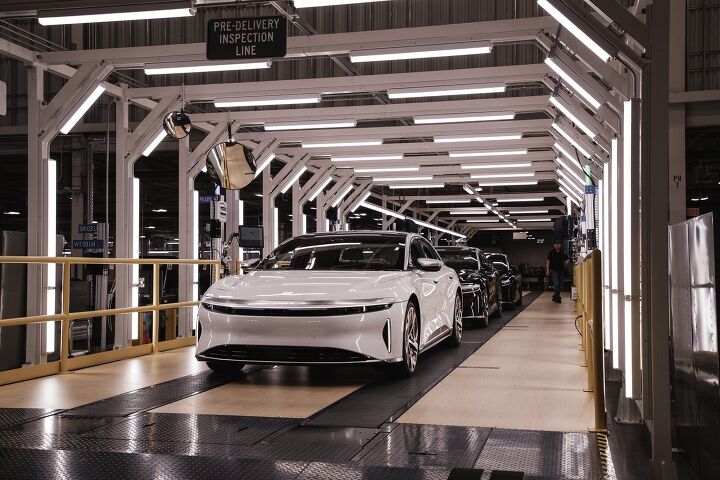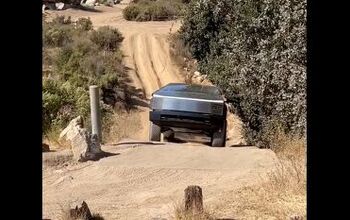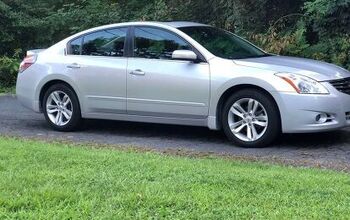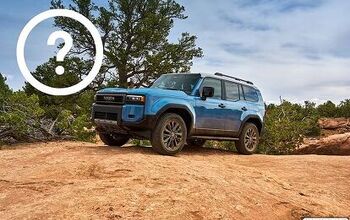Lucid Motors Becomes an Automaker

Production of the 2022 Lucid Air started this week, adding another automaker to the North American roster. The manufacturer held an event on September 28th, inviting Arizona Governor Doug Ducey, relevant executives, big-time investors, select media outlets, and customers who dropped $170,000 to purchase the limited Dream Edition of the electric vehicle.
While often framed as a Tesla ripoff, Lucid Motors has been setting its sights so high that it hardly feels like a fair assessment. Because the Air is offering one of the most impressive all-electric spec sheets in the industry right now and should probably worry the competition.
“The proprietary EV technology that Lucid has developed will make it possible to travel more miles using less battery energy. For example, our Lucid Air Grand Touring has an official EPA rating of 516 miles of range with a 112-kWh battery pack, giving it an industry-leading efficiency of 4.6 miles per kWh. Our technology will allow for increasingly lighter, more efficient, and less expensive EVs, and today represents a major step in our journey to expand the accessibility of more sustainable transportation,” Peter Rawlinson, CEO and CTO of Lucid Group, said at the event. “I’m delighted that production cars endowed with this level of efficiency are currently driving off our factory line.”
With manufacturing duties split between the Advanced Manufacturing Plant (AMP-1) and nearby Lucid Powertrain Manufacturing (LPM-1), the company thinks it should be able to commence deliveries in October. However, that will be limited to the 520 all-wheel-drive Dream Edition cars people paid extra for. The Range variant offers 520 miles on a single charge while the Performance model is said to offer an operating area of 451 miles and enough horsepower to breeze through a quarter-mile in 9.9 seconds at 144 mph.
Next on the production docket will be the 800-hp Lucid Air Grand Touring ($139,000).
Lucid said it currently has around 13,000 reservation holders, though its survival will hinge on its sales performance after those deliveries are handled and it has to focus on base (which will be rear-drive only) and mid-trimmed cars. While the manufacturer has said those models won’t have the same charging capacities as cars boasting higher MSRPs, everything is supposed to yield a maximum range in excess of 400 miles and retain DC fast-charging capability. Customers will also get three full years of free access to Electrify America charging stations.
All in all, it’s sounding quite good for Lucid. But we’ll have to wait and see if it can maintain momentum and reach the same heights that Tesla has. Lucid Motors has made some bold assertions about the future and it could be undone if has to break a bunch of promises regarding the lesser trims or quality control becomes an issue. This is a brand-new automaker, after all.
But things are looking up for the time being and the company is even considering subsequent vehicles. AMP-1 is supposed to begin production of an all-electric SUV using much of the same technology that’s gone into the Air. Its launch has tentatively been scheduled for sometime in 2023.
[Images: Lucid Motors]

A staunch consumer advocate tracking industry trends and regulation. Before joining TTAC, Matt spent a decade working for marketing and research firms based in NYC. Clients included several of the world’s largest automakers, global tire brands, and aftermarket part suppliers. Dissatisfied with the corporate world and resentful of having to wear suits everyday, he pivoted to writing about cars. Since then, that man has become an ardent supporter of the right-to-repair movement, been interviewed on the auto industry by national radio broadcasts, driven more rental cars than anyone ever should, participated in amateur rallying events, and received the requisite minimum training as sanctioned by the SCCA. Handy with a wrench, Matt grew up surrounded by Detroit auto workers and managed to get a pizza delivery job before he was legally eligible. He later found himself driving box trucks through Manhattan, guaranteeing future sympathy for actual truckers. He continues to conduct research pertaining to the automotive sector as an independent contractor and has since moved back to his native Michigan, closer to where the cars are born. A contrarian, Matt claims to prefer understeer — stating that front and all-wheel drive vehicles cater best to his driving style.
More by Matt Posky
Latest Car Reviews
Read moreLatest Product Reviews
Read moreRecent Comments
- Oberkanone Tesla license their skateboard platforms to other manufacturers. Great. Better yet, Tesla manufacture and sell the platforms and auto manufacturers manufacture the body and interiors. Fantastic.
- ToolGuy As of right now, Tesla is convinced that their old approach to FSD doesn't work, and that their new approach to FSD will work. I ain't saying I agree or disagree, just telling you where they are.
- Jalop1991 Is this the beginning of the culmination of a very long game by Tesla?Build stuff, prove that it works. Sell the razors, sure, but pay close attention to the blades (charging network) that make the razors useful. Design features no one else is bothering with, and market the hell out of them.In other words, create demand for what you have.Then back out of manufacturing completely, because that's hard and expensive. License your stuff to legacy carmakers that (a) are able to build cars well, and (b) are too lazy to create the things and customer demand you did.Sit back and cash the checks.
- FreedMike People give this company a lot of crap, but the slow rollout might actually be a smart move in the long run - they can iron out the kinks in the product while it's still not a widely known brand. Complaints on a low volume product are bad, but the same complaints hit differently if there are hundreds of thousands of them on the road. And good on them for building a plant here - that's how it should be done, and not just for the tax incentives. It'll be interesting to see how these guys do.
- Buickman more likely Dunfast.



































Comments
Join the conversation
Tesla is the Starbucks of electric cars, and there is only room for one. This company will not duplicate their success even if the product is superior, because that’s not why people by Teslas. Ford and GM won’t have that kind of success either, regardless of the product. These second comers will have to get by on their merits, price and value. And $100,000+ cars do not represent good value in any way shape or form. But good luck anyway!
Uh, what will they do when Lexus/Mercedes/JLR come out with their EV flagships? Technical competence, history, and cachet sell those three. An upstart EV built in a factory that should be made into GM's Shrine To Mediocrity will be a hard sell to those who lease a six-figure vehicle.